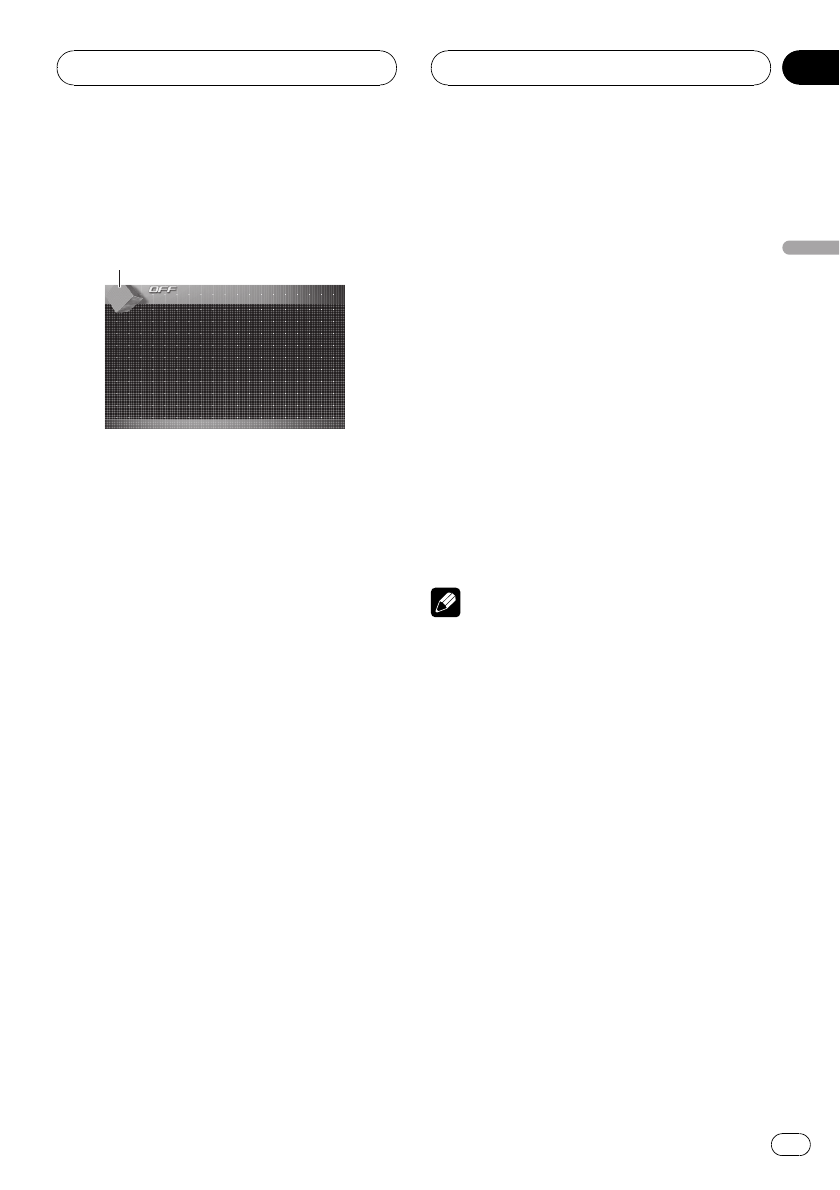
Turning the unit on and
selecting a source
1 Sourceicon
Shows which source has been selected.
You can select a source you want to listen to. If
DVD DISC AUTO is turned on, load a disc in
the unit to switch to DVD (refer to Switching
the automatic disc playback on page 117).
% When using the touch panel keys,
touch the source icon and then touch the
desired source name.
The source names are displayed and select-
able ones are highlighted.
! DVD – Built-in DVDplayer
! S-DVD – DVD player/multi-DVD player
! M-CD – Multi-CD player
! FM – FM tuner
! AM – AM tuner
! XM – XM tuner
! SIRIUS – SIRIUS tuner
! TV – Television
! AV –AV input
! EXT1 – External unit1
! EXT2 – External unit2
! AUX1 – AUX 1
! AUX2 – AUX 2
! iPod – iPod
! Telephone – BT telephone
! BTAUDIO – Bluetooth audio player
! OFF – Turn the unit off
# When the source iconis not displayed, you
can display it bytouching the screen.
# While operating themenu, you cannot select
a source by touchingthe source icon.
# To closesource select menu, touch ESC.
% When using the button, press SOURCE
to select a source.
Press SOURCE repeatedly to switch between
the following sources:
XM (XM tuner)—SIRIUS (SIRIUS tuner)—FM
(FM tuner)—AM (AM tuner)—TV (television)
—AV (AV input)—DVD (built-in DVD player)—
S-DVD (DVD player/multi-DVD player)— M-CD
(multi-CD player)—iPod (iPod)—EXT1 (exter-
nal unit 1)—EXT2 (external unit 2)—AUX1
(AUX 1)—AUX2 (AUX 2)—Telephone (blue-
tooth telephone)—BTAUDIO (bluetooth audio
player)
Notes
! In the following cases,the sound source will
not change:
— When there isno unit corresponding to the
selected source connectedto this unit.
— When there isno disc in the unit.
— When there isno disc in the DVD player.
— When there isno magazine in the multi-
CD player.
— When the AUX(auxiliary input) is setto off
(refer to page 116).
— When the AV (AV input) isnot set to
VIDEO (refer to page109).
! External unit refers toa Pioneer product(such
as one available inthe future) that, although
incompatible as a source,enables control of
basic functions by thisunit. Two externalunits
can be controlled by this unit. When twoexter-
nal units are connected, the allocation of
them to external unit1 or external unit 2 is
automatically set bythis unit.
Basic Operations
En
23
Section
04
Basic Operations
